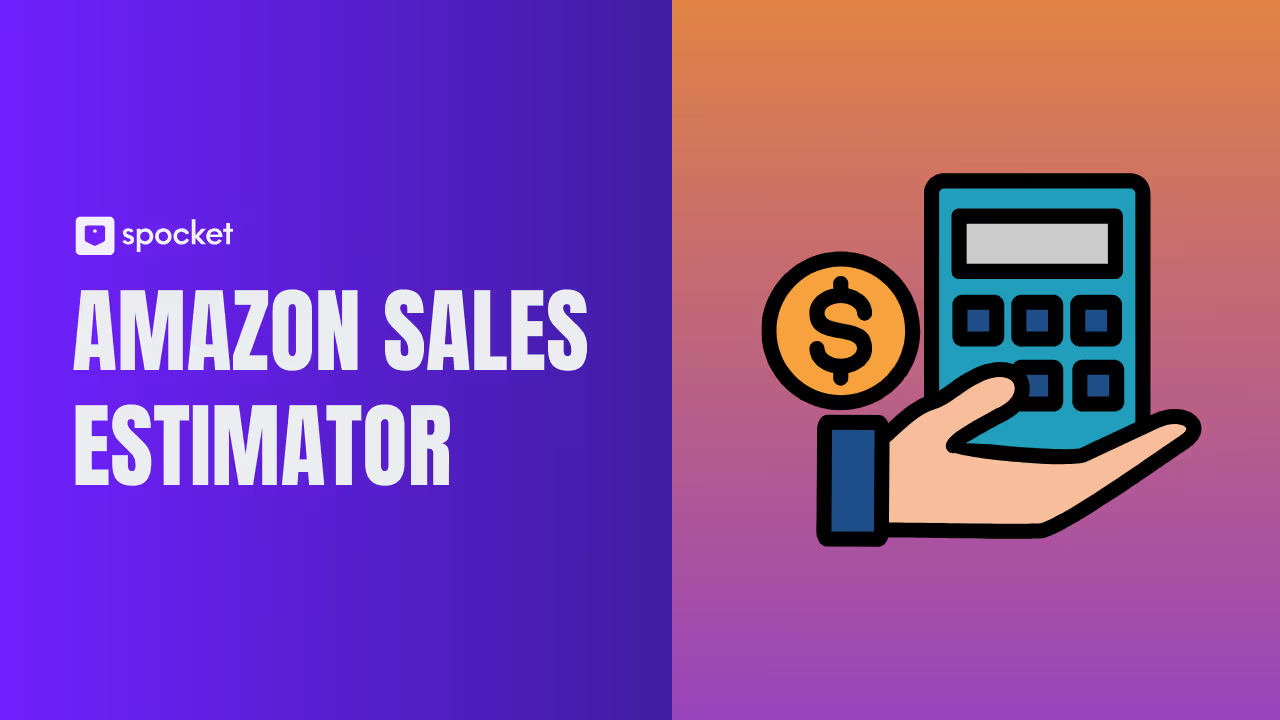Is Mercari Legit
Wondering if Mercari is safe? Read our detailed 2025 guide on Mercari’s legitimacy, buyer protection, common scams, and tips for secure buying and selling.


If you’ve ever browsed online marketplaces, chances are you've come across Mercari—a platform that's taken the e-commerce world by storm. Whether you're looking to declutter your home or score a great deal on secondhand items, Mercari promises an easy, fast, and secure way to buy and sell. But with so many online platforms out there, it’s natural to wonder: Is Mercari legit?
In this guide, we’ll break down everything you need to know about Mercari's legitimacy. From its safety features to real user experiences, we’ll help you decide if it’s the right place for you to shop or sell. If you’ve been on the fence about trying it out, keep reading to get the full picture of what Mercari offers in 2025!
What Is Mercari? Understanding the Platform's Legitimacy
Mercari is not just another online marketplace—it's a platform built on convenience, allowing users to buy and sell new and used items with ease. Since its launch in Japan in 2013, it has gained millions of active users globally, making it a strong contender in the world of e-commerce. But with all the buzz around Mercari, you might still be asking yourself, “Is it legit?”
Key Features That Make Mercari Stand Out
Mercari offers a simple, no-fuss platform to buy and sell a wide range of products. Whether it’s vintage clothing, tech gadgets, or home decor, Mercari has it all. The selling process is straightforward: snap a photo, set a price, and list the item. For buyers, Mercari offers a user-friendly shopping experience, making it easy to discover deals on everyday items.
But the real question lies in whether Mercari is as safe and secure as it claims. Let’s take a closer look at the features that make this platform tick—and whether they live up to the hype.
How Does Mercari Work? Understanding the Process for Buyers and Sellers
Now that you know what Mercari is all about, let’s dive into how it actually works for both buyers and sellers. Whether you’re browsing for great deals or looking to sell your stuff, understanding the process makes all the difference. So, how does Mercari ensure smooth transactions, and what steps do you need to take to get started?
For Buyers: Easy Shopping and Protection
Buying on Mercari is designed to be simple. After creating an account, you can browse through various categories, search for specific items, and start making offers. Once you find what you're looking for, the payment process is straightforward. Mercari offers buyer protection, so if the item doesn’t match the description or gets lost in transit, you can file a claim and get your money back.
The convenience doesn’t stop at purchases. Mercari also offers an easy return process, and you can track your order every step of the way. Whether you're a first-time shopper or a seasoned buyer, Mercari’s platform is designed to give you peace of mind.
For Sellers: Simple Listings and Fees
Selling on Mercari is equally user-friendly. After creating a free account, simply snap a photo of the item, write a short description, set a price, and hit "list." It’s that easy! Mercari also offers a shipping service, so once your item sells, you can print the shipping label directly from the app.
However, like any platform, there are fees involved. Mercari charges a 10% fee on each sale, which is deducted from the total sale price. While this may seem steep to some, the simplicity of the process and the exposure you get can make up for it. Plus, you get access to Mercari’s extensive user base, which can boost your sales.
Is Mercari Safe to Use in 2025? A Deep Dive into User Security and Protection
As you consider using Mercari, one of the biggest concerns is security—whether you’re buying or selling. In 2025, e-commerce platforms face growing challenges around fraud, counterfeit products, and user safety. So, is Mercari safe to use? Let’s break down the key safety features that ensure your experience on the platform is as secure as possible.
Mercari’s Security Features: What You Need to Know
Mercari uses a number of security features to protect users. For buyers, the platform offers Buyer Protection, which covers purchases that don’t match the description, arrive damaged, or are never shipped. This means that if something goes wrong, you’re not left in the dark—you can file a claim and get your money back.
On the seller side, Mercari ensures that your personal information is kept safe. The platform uses encryption to protect sensitive data and secure payment methods, reducing the chances of fraud. Additionally, sellers are required to verify their accounts, adding an extra layer of security to reduce scams.
How Mercari Stacks Up Against Competitors
Mercari’s safety features compare well with other e-commerce giants like eBay and Poshmark. While these platforms also offer buyer protection and secure payment systems, Mercari’s simplicity and ease of use set it apart. Users often mention Mercari’s streamlined process as a major plus, particularly when it comes to resolving disputes quickly and effectively.
Still, no platform is 100% foolproof. While Mercari has robust safeguards in place, buyers and sellers must stay vigilant—especially when dealing with new accounts or unfamiliar sellers. Always read reviews, check ratings, and proceed with caution when making deals.
Common Scams on Mercari in 2025 and How to Avoid Them
While Mercari works hard to create a safe shopping environment, like any online marketplace, scams do happen. In 2025, as online shopping continues to grow, so do the methods scammers use to trick buyers and sellers. So, what should you watch out for on Mercari, and how can you protect yourself from these scams?
Types of Scams You Might Encounter on Mercari
- Counterfeit Products: One of the most common issues on Mercari involves counterfeit items being sold as authentic. This could range from fake designer bags to knock-off electronics.
- Fake Seller Profiles: Some scammers create fake profiles to sell items, only to disappear once payment is made. They may offer items at a steep discount to lure you in.
- Phishing Scams: Scammers may attempt to steal your personal information by sending fake messages that look like they’re from Mercari, asking you to click on links or provide account details.
- Shipping Scams: A common scam in the selling process is when a seller sends an empty box or a different item than what was listed, hoping the buyer won’t realize until it’s too late.
How to Protect Yourself
- Verify Seller Information: Before purchasing, always check the seller’s ratings and reviews. A reputable seller will have a good track record with positive feedback from previous buyers.
- Use Mercari’s Payment and Shipping System: Never send money directly to sellers outside the platform, and always use Mercari’s shipping labels to ensure protection. If anything goes wrong, you’ll be able to open a dispute through Mercari.
- Stay Alert for Red Flags: Be wary of sellers offering products that seem too good to be true, or those who push for urgent sales. If a deal sounds too good to be true, it probably is.
- Report Suspicious Activity: If you come across a listing that seems suspicious, report it to Mercari. The platform actively monitors listings for signs of fraudulent activity.
By staying vigilant and following these tips, you can minimize the risk of falling victim to scams on Mercari and have a safer shopping experience.
Mercari Fees, Shipping, and Payment: Is It Worth It for Sellers in 2025?
When it comes to selling on Mercari, understanding the costs involved is crucial. While the platform offers a user-friendly experience and great exposure, there are some fees that every seller needs to be aware of. In this section, we’ll break down Mercari’s fees, shipping options, and payment structure, so you can determine if it’s worth your time and effort.
Fee Breakdown: What Sellers Need to Know
Mercari charges a 10% transaction fee on each sale. This fee is deducted from the sale price once the transaction is completed. While this fee might seem high compared to some other platforms, the simplicity of the process and the exposure you get to a large user base make it a fair deal for many sellers.
Additionally, there’s no listing fee, which means you can list as many items as you want without worrying about upfront costs. You only pay the 10% fee when your item sells, which gives you the freedom to experiment with different products without financial risk.
Shipping: How to Keep Costs Low
Shipping costs are an important factor for any seller. Mercari makes it easy by offering discounted shipping labels through their platform. Depending on the weight and dimensions of your item, Mercari will offer different shipping options, including USPS, UPS, and FedEx. You can print the shipping label directly from the app or website and ship the item.
Sellers can either choose to cover the shipping cost themselves, offer free shipping to attract buyers, or pass the cost onto the buyer. Offering free shipping may help your listing stand out in searches, but you’ll need to factor that into your pricing.
Payment: How and When You Get Paid
Once your item is sold and shipped, you’ll receive payment through Mercari’s payment system, which supports both direct deposits to your bank account and Mercari credits that can be used to purchase other items on the platform.
Mercari typically processes payments within a few days after the item is marked as delivered. This gives buyers a chance to confirm they received the item in good condition before the payment is released to the seller.
Mercari vs. Poshmark, eBay, and Other Marketplaces: Which Is the Best Option for Sellers?
If you’re a seller looking for the best platform to list your items, Mercari is one of several great options. However, it’s important to compare it with other popular marketplaces like Poshmark, eBay, and even Etsy. Each platform has its own set of features, fees, and selling experiences. Let’s break down how Mercari stacks up against its competitors to help you choose the right one for your business.
Mercari vs. Poshmark: A Comparison
- Audience: Poshmark is primarily known for clothing and fashion items, making it an ideal platform for sellers of trendy or branded clothes. Mercari, on the other hand, offers a much broader range of categories, from electronics to toys to home goods. If you’re looking to sell more than just clothes, Mercari may be a better option.
- Fees: Both platforms charge fees, but Poshmark’s 20% fee on sales over $15 is higher than Mercari’s 10%. However, Poshmark doesn’t charge any fees for items sold under $15, which can be a benefit for low-ticket sellers.
- Shipping: Poshmark requires sellers to pay for shipping, but Mercari offers discounted shipping labels and gives sellers the option to choose whether to cover the cost or pass it on to the buyer.
Mercari vs. eBay: The E-commerce Giants
- Global Reach: eBay is a giant in the online marketplace world, with a massive global audience. Mercari’s global reach is expanding, but it’s still not as widespread as eBay. If international sales are important to you, eBay might be a better fit.
- Fees: eBay charges between 10% and 12% in fees, depending on the item category. While Mercari’s 10% fee is in the same range, eBay also adds PayPal processing fees and other potential hidden costs, which could increase your overall fee burden.
- User Experience: Mercari is known for its streamlined, easy-to-use interface, while eBay’s platform can feel more cluttered, especially for new users. Mercari’s simplicity can help first-time sellers get started without much hassle.
Mercari vs. Etsy: Which Is Right for You?
- Product Focus: Etsy is the go-to platform for handmade, vintage, and craft items. If you’re selling something in this niche, Etsy might be your best option. However, if you have a broader range of products, Mercari’s flexibility might work better.
- Fees: Etsy charges a $0.20 listing fee and takes 5% in transaction fees, plus a 3% + $0.25 payment processing fee. This makes Mercari’s 10% fee look quite competitive, especially when you consider the lack of listing fees on Mercari.
Final Thoughts: Is Mercari Legit in 2025 and Beyond?
So, is Mercari legit? After exploring its features, safety protocols, and comparing it to other platforms, it’s clear that Mercari is a legitimate and trustworthy marketplace. Whether you’re a buyer or seller, the platform provides a secure and user-friendly experience. While there are some risks, as with any online marketplace, Mercari’s buyer protection, easy-to-use interface, and robust security measures make it a solid choice for most people in 2025.
For sellers, the low fees and access to a large, diverse audience make it an attractive platform for selling a wide range of items. For buyers, the convenience, variety, and buyer protection policies ensure a secure shopping experience.
Ultimately, Mercari has earned its place as a top contender in the online marketplace world. If you’re looking for an easy way to buy or sell secondhand items, Mercari is worth considering.
FAQs About Mercari's Legitimacy
What is Mercari?
Mercari is a Japanese e-commerce platform launched in 2013 that allows users to buy and sell new or used items through its mobile app. Since expanding to the U.S., UK, and other regions, it has gained popularity for its easy-to-use interface and wide range of product categories. It is now considered one of the leading online marketplaces for individuals looking to buy and sell secondhand goods.
Is Mercari safe to use?
Yes, Mercari is generally safe to use. The platform offers buyer and seller protections, including secure payment methods and a dispute resolution process. However, as with any online marketplace, users should still exercise caution. It's essential to verify seller profiles, read reviews, and always conduct transactions within the platform to ensure a secure experience.
Are there scams on Mercari?
Like many online platforms, Mercari is not immune to scams. Common scams on the platform include counterfeit products, misrepresented items, and fraudulent listings. These types of scams are more likely to occur when sellers create fake profiles or offer suspiciously low-priced products. Users should always report any unusual activity and be cautious of deals that seem too good to be true.
How can I avoid scams on Mercari?
To avoid scams on Mercari, it’s important to carefully check seller ratings and reviews before making a purchase. Always use Mercari’s secure payment and shipping system, as transactions outside the platform are not protected. If you come across any suspicious listings or sellers, report them immediately. Additionally, always communicate with sellers through the platform's messaging system to avoid being scammed by fake offers.
Does Mercari offer buyer protection?
Yes, Mercari offers buyer protection for eligible purchases. If the item you receive is significantly different from the listing, damaged, or never arrives, you can request a refund. Mercari holds the payment until the buyer confirms receipt of the item and their satisfaction with it. This ensures that buyers are protected throughout the transaction process, adding an extra layer of security to the platform.
Launch your dropshipping business now!
Start free trialRelated blogs

Gemini vs ChatGPT: Which AI Assistant Should You Use?
Compare Gemini vs ChatGPT for writing, coding, research, and ecommerce. See features, pricing, strengths, and quick pick rules to choose the best AI assistant for your workflow.

Best 10-Minute Delivery Apps India
Here is a list of the best 10-minute delivery apps India offers in 2026. From Swiggy, Zepto, Blinkit, and more! Check them out now!

Best Amazon Sales Estimators
Are you looking for a reliable and trustworthy Amazon sales estimator? Well, check out these options we have in store for you!

































